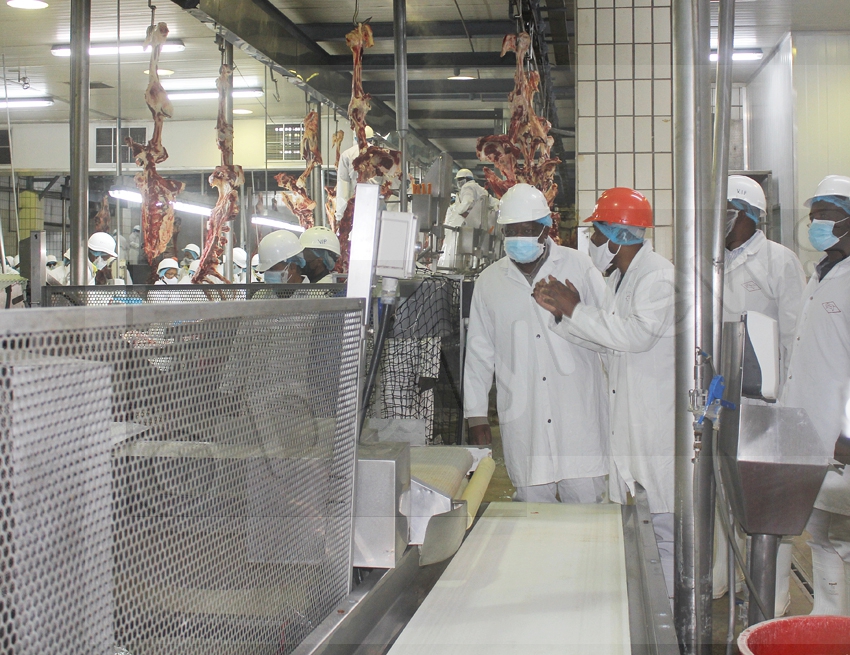Parliament gives nod to revised tourism policy
15 Apr 2021
The National Assembly on Wednesday unanimously approved the revised Tourism Policy that had been tabled by the Minister of Environment, Natural Resources Conservation and Tourism, Ms Philda Kereng.
A revised version of the 1990 Tourism Policy, the new blueprint is to act as a guiding framework to provide the platform for building a resilient domestic tourist sector that is competitive for a long period of time, Ms Kereng said.
Debating the Tourism Policy before passing its adoption, Members of Parliament expressed different views, mostly calling for improved citizen participation in the various business activities aligned to the tourism industry.
Vice President Mr Slumber Tsogwane said he supported the notion of coming up with strategic intervention to assist citizen entrepreneurs to be able to become meaningful role players in the tourist sector.
Mr Tsogwane said he was pleased that Parliament recently passed the Climate Change Policy as it would address the environmental degradation that has the potential to ruin the country’s potential as a tourist destination.
He said it was wise that the two policies would run concurrently, as they would complement government effort to both preserve and promote the country’s flora and fauna.
Mr Tsogwane also said community based natural resource management (CBNRM) initiatives would continue to ensure that villages in the countryside derive benefit from tourism and urged community trusts to work alongside Village Development Committees (VDCs) in prudently utilising funds acquired from tourism.
Making his contribution to the debate, Minister for Presidential Affairs, Governance and Public Administration, Mr Kabo Morwaeng said Botswana was geographically a large territory and Batswana need to partake in domestic tourism in order to appreciate their own country.
The Molepolole South legislator further said that different parts of the country had strong undeveloped potential as tourist destinations that needed to be enhanced and packaged for both domestic and international tourism.
Mr Morwaeng cited Molepolole as an example, stating that it had strong historical places that should be developed, including the Dithejwane Hills where the second Tswana-Boer war was fought in the late 1800s; Ntsweng where a museum was being planned and Legaga la ga Kobokwe, a historic cave on the outskirts of Molepolole.
Leader of the Opposition and Maun West MP, Mr Dumelang Saleshando said he was happy with the overall content of the policy, but called for better targets.
He said the country should be showing greater ambition than creating 40 000 jobs in the tourism sector by 2030 as expressed in the new Tourism Policy.
Mr Saleshando said middle income countries in the region with similarly small populations such as Namibia and Mauritius currently employed as many as 100 000 and 75 000 people respectively in the sector, and said Botswana should also be showing bold ambition to generate more employment through tourism.
He also said there was a need to empower communities in tourist areas such as Maun and Ngamiland, stating that such regions were the backbone of tourism in the country, but local communities were underdeveloped.
He said the structure of the tourism industry was such that it had been skewed towards foreign and non-indigenous Batswana entrepreneurs dominating the sector.
Gaborone Central MP, Mr Tumisang Healey said Botswana was in a unique position where 40 per cent of the country’s land mass has been reserved for wildlife management areas, game reserves and national parks.
Mr Healey said the country should utilise this land productively to boost tourism and further position cities like Gaborone for urban and cultural tourism by investing in physical infrastructure in places such as the Gaborone Dam and Segoditshane River as well as in activities that could lure tourists to the capital. ENDS
Source : BOPA
Author : Pako Lebanna
Location : GABORONE
Event : Virtual Parliament
Date : 15 Apr 2021



